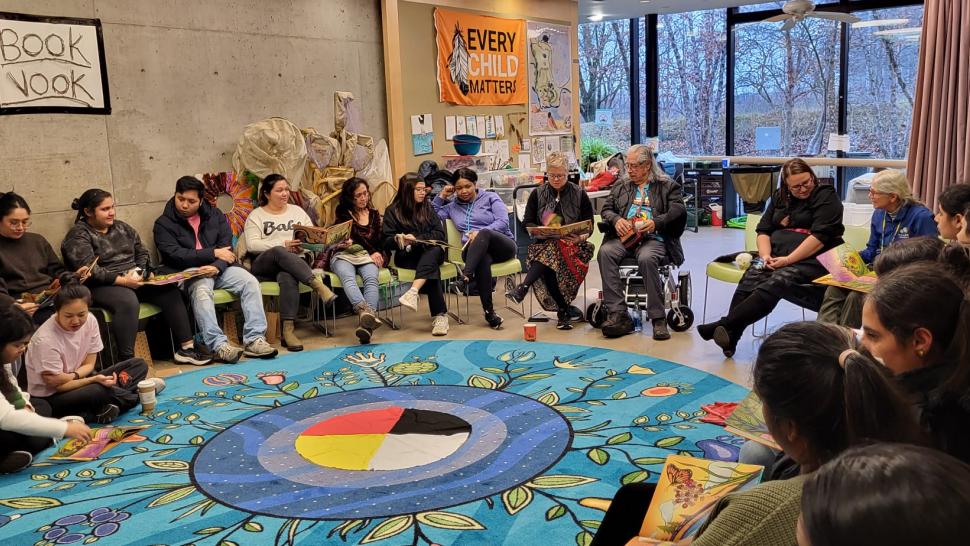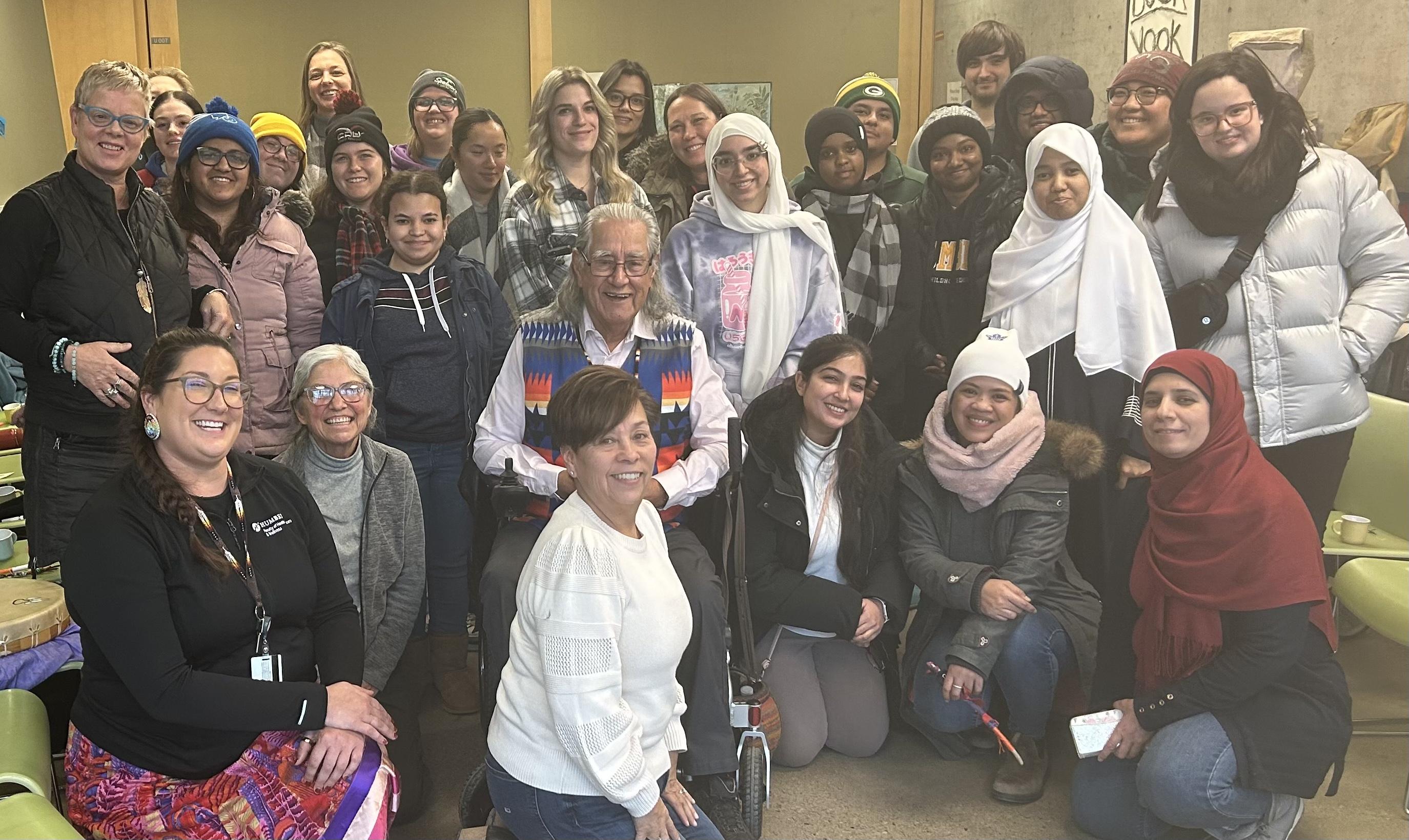
Students in Humber College’s Early Childhood Education program were treated to the wisdom of Mi’kmaw Elder Albert Marshall when he spent a week in late November sharing his knowledge with them.
Elder Marshall, Moose Clan from Eskasoni First Nation in Unama’ki (Land of the Fog, also known as Nova Scotia) connected with students taking the Land-Based Play and Co-Learning through Etuaptmumk/Two-Eyed Seeing course, which embraces the principles of Etuaptmumk – Two-Eyed Seeing in the Mi’kmaq language.
The course, which is the only one of its kind in Canada at the post-secondary level, braids Indigenous and non-Indigenous perspectives and ways of knowing together for the benefit of all, including our eco-kin.
The course plants the seeds of sustainability by engaging in meaningful Land-based relationships and giving back in return for what we receive from the Earth. It’s uniquely co-taught by Indigenous and non-Indigenous faculty and supported by local and regional Indigenous Elders and Knowledge Holders.
“On our journey, we must open our eyes and ears to other perspectives,” said Elder Marshall. “Two-Eyed Seeing was developed as a means to bring us all together.”
He added that it’s a willingness to be open to other perspectives before noting that “love and compassion will always prevail no matter what challenges we’re facing.”

Humber Early Childhood Education Professor Louise Zimanyi met Elder Marshall in early 2020 and the two were part of a Knowledge and Research Collective to co-create, deliver, and evaluate the new course. They also co-authored the children’s picture book Walking Together, which introduces readers to Etuaptmumk, the gift of multiple perspectives in the Mi’kmaw language or Two-Eyed Seeing.
Elder Marshall shared with the students the importance of a Land-based education to help develop an appreciation and respect for Earth Mother. He spoke about being a child and how his parents would take him out into the natural world daily.
“It’s important that at an early age it’s instilled that Earth Mother gives us the gifts we need, and we be reminded of our inherent responsibility that any action we take on Earth Mother must be in harmony with her,” said the honorary Doctor of Letters, Mi’kmaw spiritual leader, author, advocate and award winner.
If harm is caused, it must be addressed and remedied, he added.
The students first gathered with Elder Marshall in the Humber Arboretum with Professors Olga Rossovska and Cara Loft for a smudging ceremony, hand drumming and singing and Land acknowledgment offered by students. Elder Marshall, who received an honorary degree from Humber during Spring 2023 Convocation, spoke with the students before receiving an offering of tobacco, which is tradition when requesting an Elder to share their knowledge.
Following that, they headed to the Centre for Urban Ecology for a group reading of Walking Together.
The students had many questions for Elder Marshall, asking him about how one becomes an Elder, where the concept of Two-Eyed Seeing originated and how to be thoughtful stewards of the land.
More information can be found at the Early Childhood Education program webpage.
The Two-Eyed Seeing Approach to Land-based Play and Co-Learning in Early Learning and Child Care Ecosystems is supported by the Lawson Foundation.